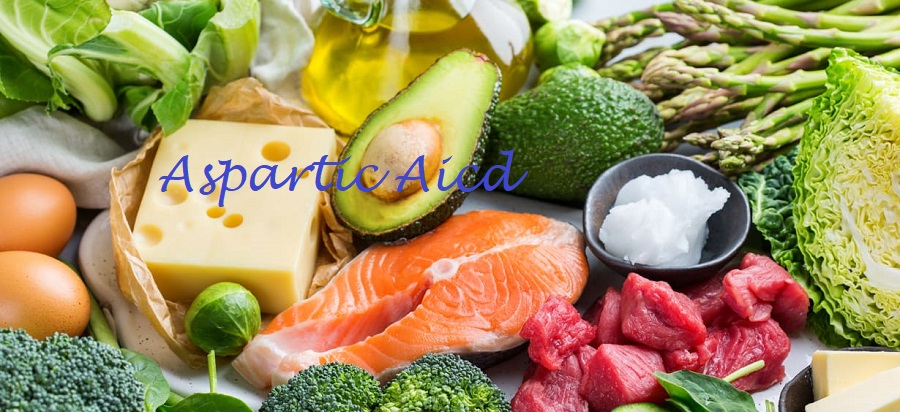Glutamic acid, also known as glutamate, is one of the 20 amino acids that make up proteins in the human body. It plays a key role in many bodily functions, including protein synthesis, the metabolism of sugars, and the transmission of nerve impulses.
In the food industry, glutamic acid is commonly used as a flavor enhancer, particularly in the form of monosodium glutamate (MSG). It is found naturally in many foods, including meat, dairy products, and fermented foods like soy sauce and cheese. It is also found in some dietary supplements.
Glutamic acid is also important for brain function. It is a neurotransmitter, which means it helps transmit nerve impulses in the brain. It is also involved in the regulation of learning and memory.
Some studies have suggested that consuming glutamic acid may have health benefits, such as reducing fatigue and increasing endurance during exercise. However, more research is needed to confirm these potential benefits.
It is important to note that excessive intake of glutamic acid, especially in the form of MSG, may cause some people to experience side effects such as headaches, flushing, and sweating. The FDA has classified MSG as generally recognized as safe (GRAS) for use as a food ingredient but some people may still have a sensitivity to it.
It is also important to note that Glutamic acid is also one of the non-essential amino acids, meaning that it can be produced by the body and doesn't need to be obtained through diet.
How is glutamic acid involved in the process of protein synthesis?
Glutamic acid plays a key role in the process of protein synthesis. Proteins are made up of long chains of amino acids, and glutamic acid is one of the 20 amino acids that can be incorporated into these chains.
During protein synthesis, the genetic code stored in DNA is used to synthesize a specific sequence of amino acids. This sequence is determined by the genetic code and is carried out by the process of transcription and translation. Glutamic acid is one of the amino acids that is incorporated into the protein chain during translation.
In addition to being a building block of proteins, glutamic acid also plays a role in the proper folding and function of proteins. It is often found at the active site of enzymes, where it helps catalyze chemical reactions. It is also involved in the formation of disulfide bonds, which are important for the stability and function of many proteins.
Overall, glutamic acid is an important part of the process of protein synthesis, and is essential for the structure and function of many proteins in the body.
What are the natural sources of glutamic acid?
Glutamic acid can be found in a wide variety of natural sources, including:
-
Meat and fish: animal-based proteins such as beef, chicken, pork, and fish are rich sources of glutamic acid.
-
Dairy products: milk, yogurt, and cheese are good sources of glutamic acid.
-
Legumes: beans, lentils, and peas are good sources of glutamic acid.
-
Nuts and seeds: almonds, walnuts, cashews, and sunflower seeds are good sources of glutamic acid.
-
Fruits and vegetables: spinach, broccoli, asparagus, and avocados are good sources of glutamic acid.
-
Fermented foods: soy sauce, miso, and tamari are good sources of glutamic acid.
-
Grains: barley, wheat, and oats are also good sources of glutamic acid.
It is important to note that Glutamic acid is also one of the non-essential amino acids, meaning that it can be produced by the body and doesn't need to be obtained through diet. The human body can produce Glutamic acid through the breakdown of other amino acids, and the diet is typically rich in Glutamic acid, so a deficiency is rare.
How is glutamic acid used in the food industry as a flavor enhancer?
In the food industry, glutamic acid is commonly used as a flavor enhancer in the form of monosodium glutamate (MSG). MSG is a salt form of glutamic acid, and it is used to enhance the savory taste of foods, also known as umami taste.
MSG is used in a wide variety of processed foods, such as soups, gravies, sauces, and snack foods. It is also used in many Asian cuisines, particularly Chinese and Japanese, where it has been used for centuries to enhance the flavor of foods.
When MSG is added to food, it enhances the natural flavors of the ingredients, making them taste more savory and palatable. It is particularly useful in low-salt and low-fat foods, as it helps to enhance the taste without adding salt or fat.
MSG is also used in many food products as a flavor enhancer, it is also used in infant formula, and it is considered safe by FDA and other health organizations worldwide. However, some people may be sensitive to MSG and may experience symptoms such as headaches, flushing, and sweating after consuming it, but these symptoms are not harmful, and most people can safely consume MSG.
Overall, glutamic acid in the form of MSG is widely used in the food industry as a flavor enhancer, due to its ability to enhance the natural flavors of foods, making them more palatable and enjoyable to eat.
What are the potential health benefits of consuming glutamic acid?
There are several potential health benefits of consuming glutamic acid, including:
-
Improving mental function: Glutamic acid is a neurotransmitter, which means it helps transmit nerve impulses in the brain. Some studies have suggested that consuming glutamic acid may improve mental function and boost brain health.
-
Reducing fatigue and increasing endurance: Some studies have suggested that consuming glutamic acid may reduce fatigue and increase endurance during exercise.
-
Helping with weight management: Glutamic acid may help reduce appetite and food cravings, which may be beneficial for weight management.
-
Improving the immune system: Glutamic acid is essential for the production of glutathione, a powerful antioxidant that helps strengthen the immune system.
-
Helping with wound healing: Some studies suggest that Glutamic acid may help with wound healing by promoting the growth of new tissue.
It is important to note that while these potential health benefits are promising, more research is needed to confirm them. Also, it is important to keep in mind that consuming excessive amounts of glutamic acid, especially in the form of MSG, may cause some people to experience side effects such as headaches, flushing, and sweating.
It is always recommended to consult a healthcare professional before taking any dietary supplement containing glutamic acid and to make sure you are getting the recommended daily intake through a balanced diet.
Are there any risks or side effects associated with consuming too much glutamic acid?
While glutamic acid is considered safe and can be found in many natural food sources, consuming excessive amounts of it, especially in the form of monosodium glutamate (MSG), may cause some people to experience side effects such as headaches, flushing, sweating, and numbness or tingling around the face and neck. These symptoms are usually temporary and harmless but can be uncomfortable for some people. These symptoms are commonly referred as the "MSG symptom complex" or "Chinese restaurant syndrome"
It is also important to note that some people may be more sensitive to MSG than others, and may experience symptoms even at low doses. People who are sensitive to MSG may want to avoid foods that contain MSG or limit their consumption of MSG.
Some studies have also suggested a link between high intake of MSG and obesity, but more research is needed to confirm this association.
Additionally, it is important to note that most studies on the negative effects of MSG have been conducted on animals, and the results are not always transferable to humans. Also, the FDA has classified MSG as generally recognized as safe (GRAS) for use as a food ingredient, and it is considered safe to consume MSG in moderate amounts.
Overall, it's important to consume Glutamic acid in moderation, and to be mindful of foods that contain MSG, especially if you are sensitive to it. Consult a healthcare professional if you have any concerns or questions about consuming Glutamic acid.
How does glutamic acid interact with other amino acids in the body?
Glutamic acid interacts with other amino acids in a number of ways in the body.
-
Protein synthesis: Glutamic acid is one of the 20 amino acids that make up proteins in the human body. It plays a key role in the process of protein synthesis, as it is incorporated into the protein chain during translation.
-
Metabolism: Glutamic acid is involved in the metabolism of other amino acids, such as aspartic acid, proline and arginine.
-
Neurotransmission: Glutamic acid acts as a neurotransmitter, which means it helps transmit nerve impulses in the brain. It interacts with other neurotransmitters such as GABA, and it plays a role in the regulation of learning and memory.
-
Glutathione production: Glutamic acid is an important precursor for the production of glutathione, a powerful antioxidant that helps strengthen the immune system.
-
Enzyme function: Glutamic acid is often found at the active site of enzymes, where it helps catalyze chemical reactions. For example, Glutamic acid is involved in the citric acid cycle, also known as the Krebs cycle, which is the series of chemical reactions that produce energy in cells.
Overall, Glutamic acid is an important amino acid that plays multiple roles in the body, it interact with other amino acids and helps in the proper functioning of many bodily processes.


